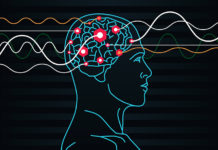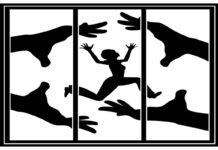As a Psychologist, I’ve Seen Many Children Misdiagnosed as Autistic—It’s a Clinical Catastrophe
The ASD diagnosis glosses over the many developmental specifics that might underlie a child’s challenges related to social communication.
Crash Course in Urban Shamanism
Shamans are the magician spirit healers in tribal, non-technological societies around the world. Anthropologists use the word “shamanism,” from the Tungus people of Siberia, to mean the commonalities between different traditions. Shamans find their calling through a life-threatening initiatory illness or crisis, go into visioning and trance to connect to other realities, shapeshift out of their regular identity to identify with animals, spirits, and even illnesses, and return to the ordinary world to share skills of healing and creativity. Living at the edge of society and defying conventional norms, conduct, and even gender, shamans are respected as a powerful community link to the divine.
Jinxed: The Persecution of Evan Durst Kreeger
I am very concerned that Evan is about to be devoured by psychiatry's maw. Things could be different if Evan were able to hire an attorney or attorneys to deal with all of these different legal actions coming at him and otherwise protect his interests such as sue the trustees for their unconscionable actions, but as I have indicated, his trustees have cut off his money so he can't hire such an attorney or attorneys.
Putting JAMA Psychiatry and MIA to the Genetic Test
We can assess whether Mad in America readers or JAMA Psychiatry readers are being provided with the most robust scientific literature.
ADHD: A Destructive Psychiatric Hoax
Nobody is denying that inattention, hyperactivity, and impulsivity can be real problems. The issue at stake, however, is whether it makes any sense to conceptualize this loose cluster of vaguely-defined problems as an illness.
David Foster Wallace: Suicide and the Death of Agency
Today is the 10th anniversary of David Foster Wallace’s suicide. While it’s not fair to build an entire theory on an incredibly complicated issue like suicide around one person, Wallace’s death should challenge the common narratives around suicide — that “mental illness” causes it and that “we can’t ever know why people do it.” Both of these are self-serving platitudes that are simply not true.
Charles Spencer’s Story of Boarding School Abuse Is Haunting
But parents are still sending children away to board, and it’s still dangerous.
Neurofeedback is Not For Everyone: The Dangers of Neurology
One thing I noticed, from the moment that I stepped out of my psychiatrist’s office, was how strangely blank and yet clear my mind was. I felt surprisingly calm and relaxed, and I decided to go back for another treatment the next week. What I couldn’t have known then was that after that next “treatment,” life would be completely destroyed for me.
Dostoevsky: A Psychologist We Can All Learn From
Psychology has greatly broadened its scope since Nietzsche’s day and yet his implied criticism is one the discipline is still wrestling with.
Post-Acute Withdrawal Syndrome (PAWS): How the Last Step to Recovery Became the Final Step...
How persistent, unbearable suffering, due to prolonged withdrawal from antipsychotics prescribed as a sleeping medication, led to euthanasia.
Bad Science Revisited: “The Bell Curve” Turns 30
Critiquing the wildly popular 1994 eugenicist book, which purported to link IQ and race, by reviewing the supposed genetic evidence.
Unattached Burdens: IFS Helps Us Understand What Psychiatry Ignores
To heal from unattached burdens requires an understanding of the mind that psychiatry lacks.
Medication Overload, Part II: The Explosion of Drugs for Kids
An analysis of the huge increase in drugs for children, the role of Big Pharma, and a look at the impact on families and communities.
Hegemonic Sanity and Suicide
The “good” suicide attempt survivor wakes up in a hospital bed bathed in beautiful natural light, surrounded by the people who love them most, and they realize that their thinking was flawed and all those unsolvable problems can actually be solved if they are just compliant with medication and therapy. And then there's the “bad” suicide attempter who is angry that they lived, who challenges the status quo.
“Three Identical Strangers” and the Nature-Nurture Debate
Three Identical Strangers is a riveting film describing the story of identical triplets separated at six months of age and reunited in early adulthood. Their story provides no evidence in support of the genetic side of the nature-nurture debate, but it does supply some evidence in favor of the environment.
Traumatic Immobility: Depression as a Stress Response
What if we don't have a depression epidemic, but a stress epidemic of traumatic proportions? What if we've been steered away from learning how our minds and bodies actually work, and into believing that our attempts to survive traumatic, threatening real-life circumstances are "symptoms of mental illness"?
DOOCE: A Case Study on the Failure of Psychiatry
Heather Armstrong’s life was taken by psychiatry, and our unwillingness to scrutinize their methods of madness.
Three Suicides: Honoring Lives Lost to Benzodiazepines
I am still trying to reconcile what these chemicals are capable of, how the urge can morph into an action, how we maybe just don’t understand suicide all that well. For me, the suffering was so intense it was too painful to stay alive. I understand how my friends felt in their last moments.
A New Vision for Mental Health Care at Soteria Jerusalem
Despite living in Israel for five years, I had no idea that one of the few Soteria houses in the world was only a short train ride away.
Reflections on a Psychiatric Indoctrination, or, How I Began to Free Myself from the...
(dictionary.com)
Cult, n.
a particular system of religious worship, especially with reference to its rites and ceremonies.
an instance of great veneration of a person, ideal, or...
Szasz and the Liberation of the “Mental Patient”
By setting standards of equality, competence, and accountability, Szasz worked for the liberation of the "mental patient.”
Starvation: What Does it Do to the Brain?
The Minnesota Starvation Experiment was conducted at the University of Minnesota during the Second World War. Prolonged semi-starvation produced significant increases in depression, hysteria and hypochondriasis, and most participants experienced periods of severe emotional distress and depression and grew increasingly irritable. It really should not be a surprise to this audience that the brain’s functioning is highly compromised when the body is being starved of food (and nutrients). What we wonder is whether eating a diet of primarily highly processed foods low in nutrients has similar effects.
How to Avoid Severe SSRI Withdrawal Symptoms?
After long-term use, most people are going to have serious symptoms when stopping SSRIs. Many people are going to have transient, mild to moderate difficulty and some are going to end up falling down the akathisia rabbit hole. That is a long, difficult drop.
The Integration of Peer Support Principles in Community Mental Health Policy and Practice: Toward...
Though there are obstacles, integration of peer support is already underway thanks to change agents in the mental health system.
From a Paranoid Schizophrenia Diagnosis to a Peer Researcher in Nigeria
The mental health system needs to adopt the principle of holistic care, promoting fundamental rights and the relevance of family support.































